8 reasons Magento is the perfect B2B ecommerce platform

Although B2B businesses were slow to hop on the ecommerce bandwagon, Magento has become a favorite for B2B ecommerce for specific reasons.
B2B ecommerce sales in the US are estimated to reach a whopping $1.8 trillion by 2023. That’s more than three times the estimate for B2C ecommerce.
A study by Forrester Research showed that millennials, a generation famous for its love of technology, are now involved in making 73% of all B2B buying decisions. So, companies that adapt their strategies to target millennials will likely outperform their competition.
If you want to capitalize on the rising popularity of B2B ecommerce and adapt to its changing buyer demographic, you need a platform capable of delivering personalized and intuitive shopping experiences.
An introduction to Magento product editions
Magento offers two primary editions: Magento Open Source and Adobe Commerce, each designed for different business needs.
Magento Open Source, aka Magento Community Edition, is the free-to-use edition that offers basic ecommerce functionality. It’s the go-to edition for small businesses with simple needs.
Adobe Commerce, aka Magento Commerce and Magento Enterprise Edition, is the paid version that offers advanced integrated ecommerce functionality suitable for enterprises.
This article focuses on Magento Commerce features courtesy of its B2B module and highlights eight convincing reasons why Magento is perfect for building a B2B ecommerce store.
Eight reasons why Magento is the ultimate B2B ecommerce platform
Magento has a solid reputation for being a reliable and scalable B2B ecommerce platform.
Here are eight Magento B2B features you can leverage to fuel your growing business.
1. Company Accounts
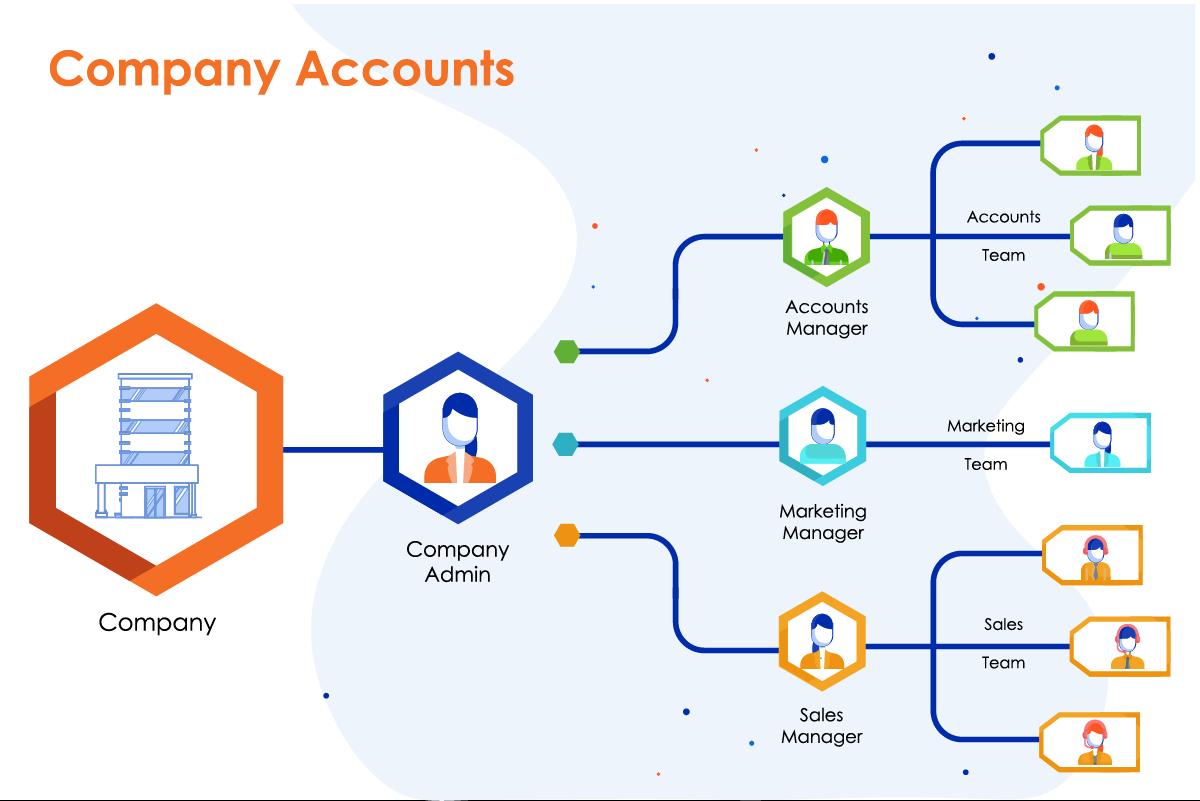
Managing multiple users under a single account can be challenging for B2B businesses. The Company Accounts feature in Magento Commerce addresses this challenge in two ways:
It allows you to create and manage company accounts for your customers. As a result, you can offer custom catalogs, pricing, and payment terms for each of your B2B customers.
And it allows company account admins to set up unlimited users and teams within their organization. Moreover, it also lets them control access to account resources with flexible permissions.
Magento reduces the administrative burden of your business and frees up your time so you can focus on growth.
2. Shared Catalogs
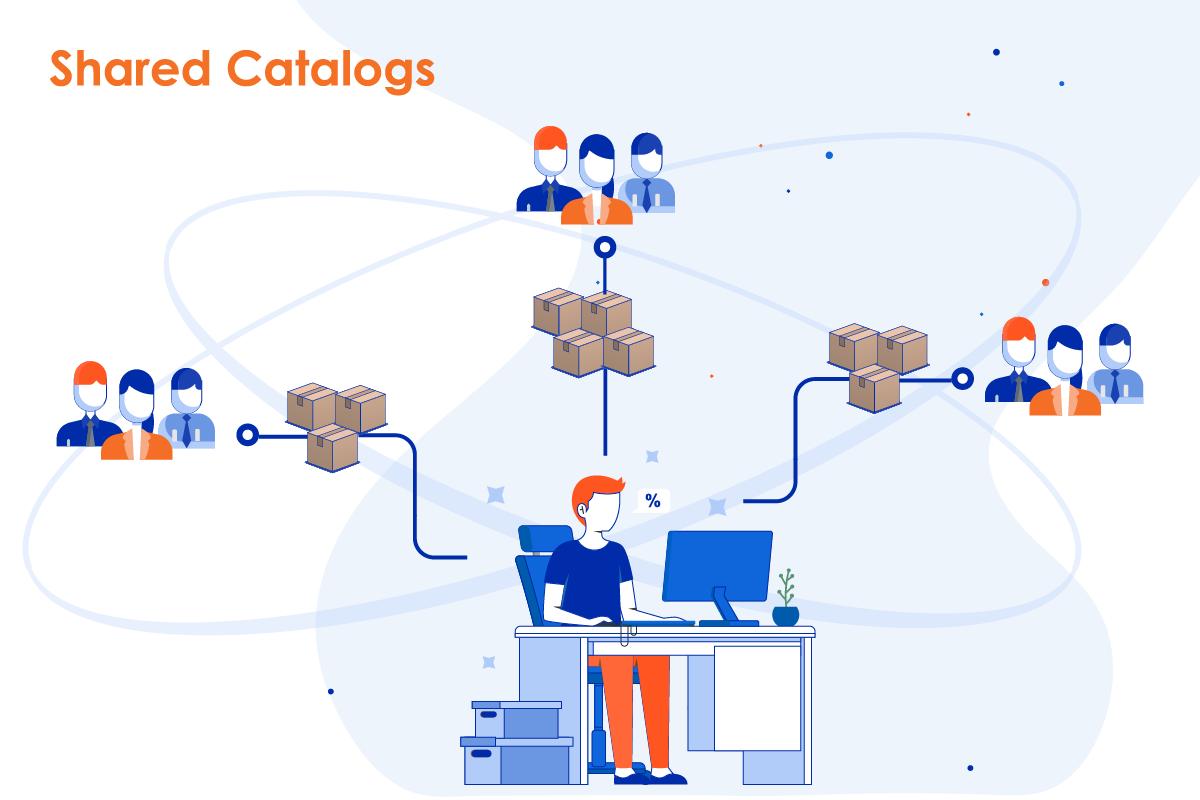
Magento’s Shared Catalogs feature allows you to create dedicated catalogs for your customers. You can use them to offer special products, pricing, and discounts to company accounts.
You can access your custom catalogs in the admin panel to create a default catalog for all site visitors and associate custom catalogs to select company accounts.
The best part is that you don’t need to track each customer account separately. Magento helps you keep pricing arrangements with your customers confidential on your website.
3. Private sales and events

Limited-time sales are ideal for liquidating stock when you have an incoming consignment and need to make room for inventory. With Magento Commerce, you can create private sales pages, limited-time events, and customer-specific sales to move dead stock.
You can configure events to be invite-only or open to all. Additionally, you can advertise them on your website using an event ticker or a carousel.
Private events are perfect for leveraging your existing customer base to boost sales and inspire brand loyalty. After all, nothing says VIP like an invite-only sales event.
4. B2B Quotes
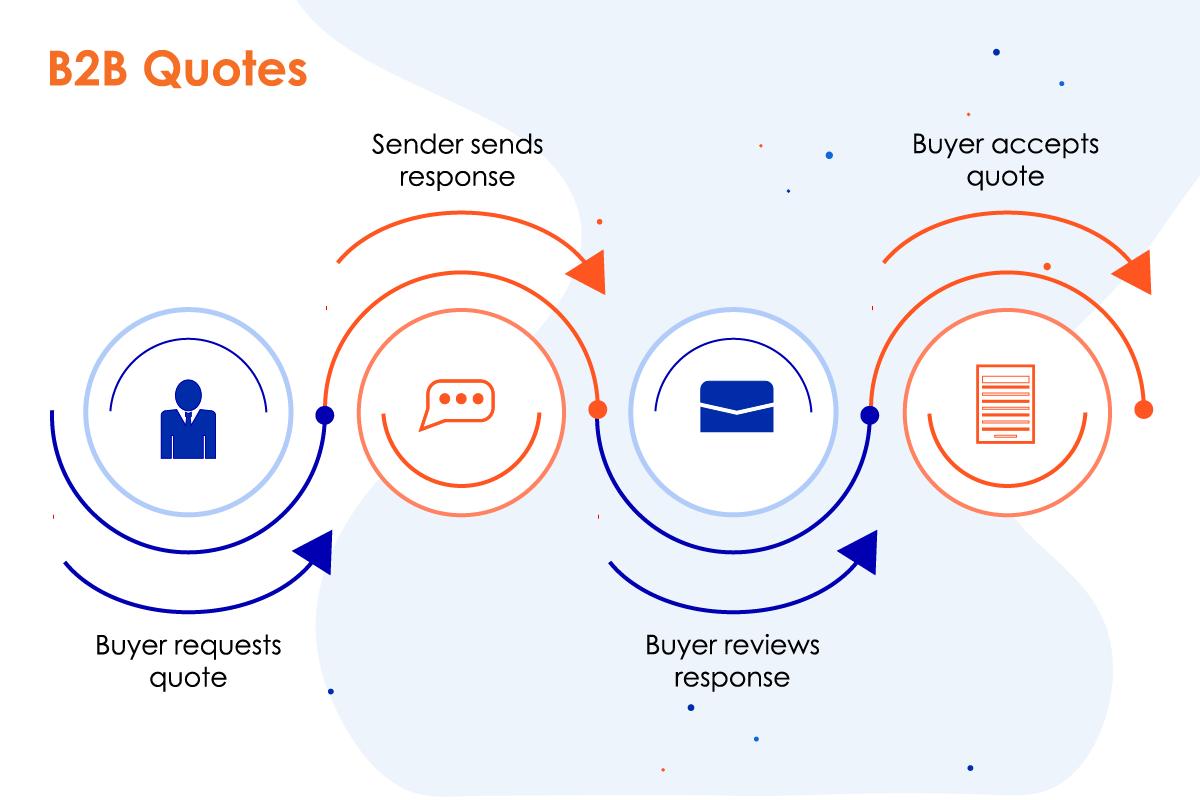
The standard B2B quoting process is complex. And issues like quoting errors and technical glitches only make things worse.
But the good news is that Magento can help you modernize your quoting process. The Quotes feature in Magento Commerce allows company users to start price negotiations from their shopping carts.
You can negotiate over email and update the quote from the admin panel once you’ve reached an agreement. Moreover, you can also integrate your store with your ERP system and streamline the quote management process entirely.
The opportunities to improve your business processes through custom Magento development are endless.
5. Quick Orders
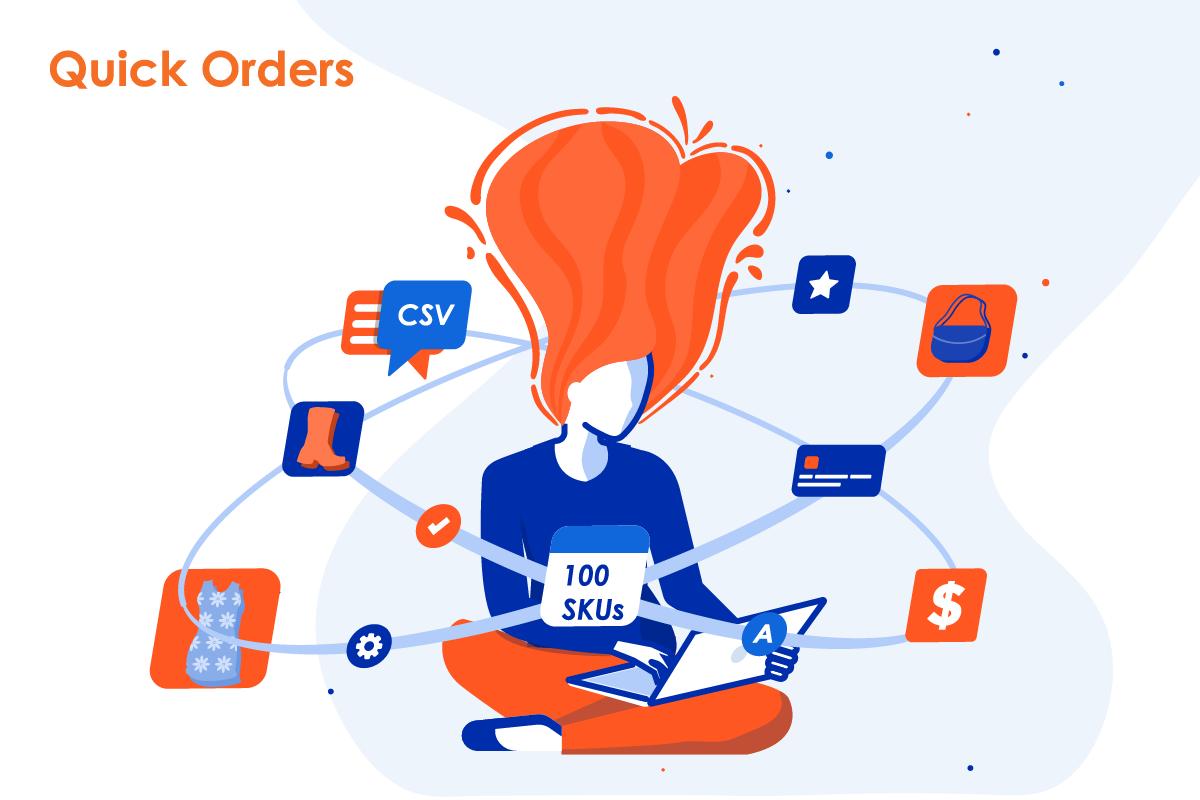
The traditional B2B ordering process is time-consuming. And for B2B ecommerce customers that order hundreds of SKUs at a time, it can be downright exhausting.
Magento Commerce’s B2B module offers a Quick Orders feature to simplify this process. It allows your buyers to place orders by directly entering SKUs or importing them in bulk using a CSV file. This helps them add hundreds of SKUs to their cart in a few seconds.
Once the items are in their cart, they can place their order by checking out or commence price negotiations. Magento makes it convenient for your customers to place large orders in a few clicks.
6. Requisition Lists
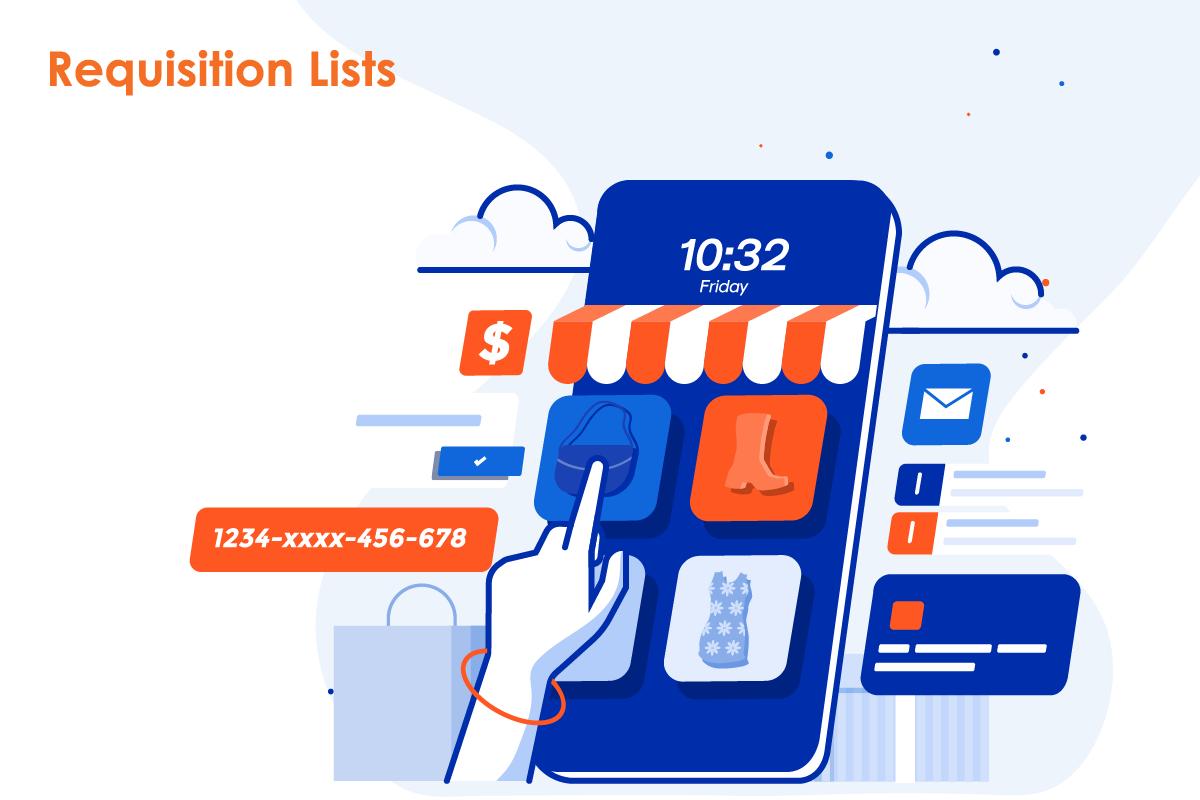
Requisition lists are perfect for B2B ecommerce buyers that reorder items frequently. Although they behave like wish lists, the products in a requisition list persist even after customers add them to their carts.
Magento Commerce has a dedicated section in the customer dashboard for requisition lists. It offers a compact list-style view to accommodate big lists and helps customers streamline their workflow with up to 999 lists.
Customers can add products to their requisition lists from the product page, the catalog page, the shopping cart, and past orders. They can also edit their lists, print them, and even export them to a CSV file from their dashboard.
Magento makes it easy for your B2B customers to place repeat orders.
7. Purchase Orders
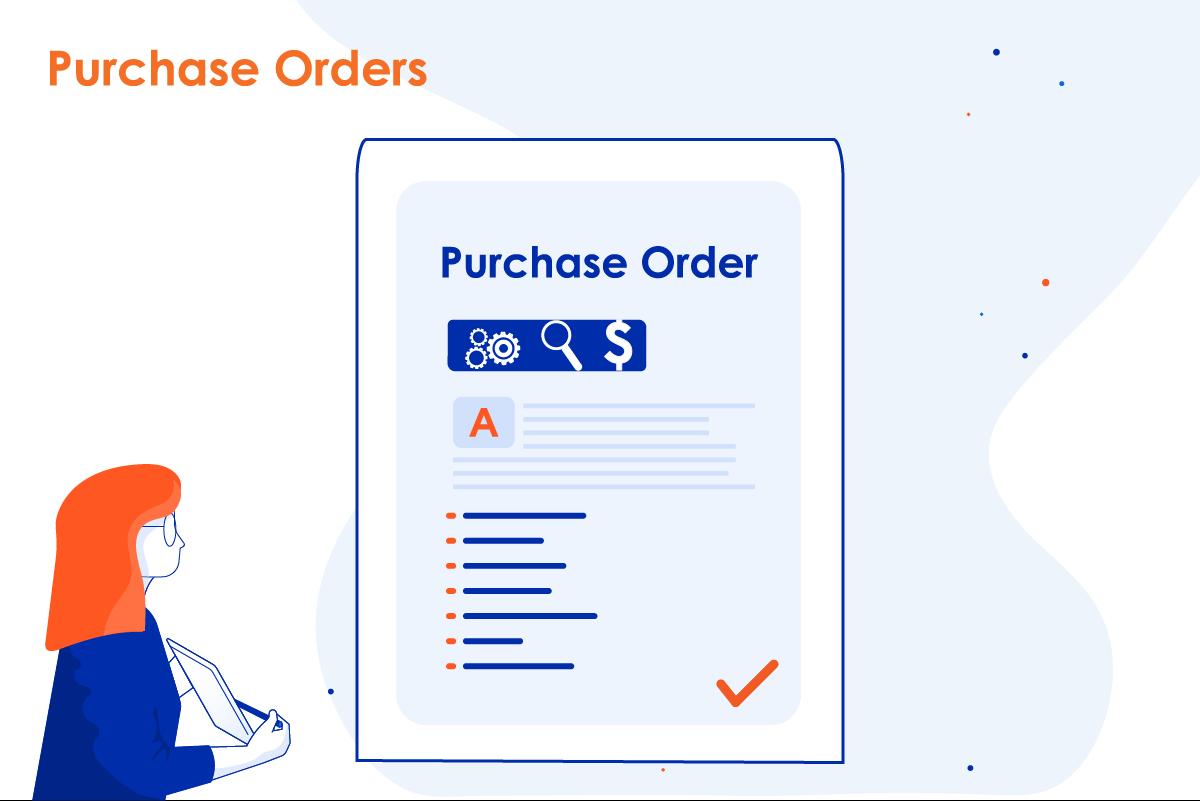
Magento Commerce’s B2B module allows you to accept purchase orders (POs) through your website. It also lets company account admins authorize their users to place orders using POs.
Additionally, it lets them configure rules and automate approvals for orders placed by their users. All POs that fail to meet their approval criteria can be approved or rejected through their account dashboard.
Besides managing POs, they can create new POs from existing ones and merge them with items in their shopping cart.
Magento makes it easier for your customers to place orders using POs and helps you make more sales.
8. AI-powered Personalization

One of our favorite Magento Commerce features comes courtesy of Adobe’s proprietary AI technology — Adobe Sensei.
Through its Product Recommendations tool, you can leverage the power of AI on your B2B store. Adobe Sensei gathers data such as product views, purchases, and other catalog events from your Magento B2B ecommerce platform.
It analyzes this data and offers real-time product recommendations to your customers as they browse your website. Magento creates an engaging shopping experience to help you boost sales and customer retention.
Unleash your B2B business growth with Magento
We’ve just highlighted how Magento offers several intuitive features designed to simplify a B2B ecommerce enterprise. It can help you:
Streamline customer account management
Offer custom pricing and catalogs
Improve customer retention through invite-only sales and personalization
Enable negotiations through the shopping cart and accept purchase orders
Simplify bulk ordering for B2B customers
Implementing one or several factors we noted above can have positive effects on your B2B sales and client relationships. Magento has a modular architecture designed for B2B extensibility. So, you can customize it entirely to suit your business needs.
Our team of B2B ecommerce development experts can help you with all things Magento. Migrations, integrations, and custom builds, we can do it all.
Schedule a free consultation to discover how we can help you take your business to the next level with Magento.
